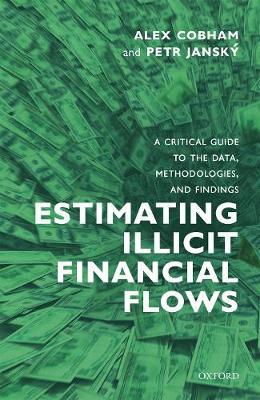Estimating Illicit Financial Flows

Estimating Illicit Financial Flows
Illicit financial flows constitute a global phenomenon of massive but uncertain scale, which erodes government revenues and drives corruption in countries rich and poor. In 2015, the countries of the world committed to a target to reduce illicit flows, as part of the UN Sustainable Development Goals. But five years later, there is still no agreement on how that target should be monitored or how it will be achieved.
Illicit financial flows occur through many different channels, whether they involve laundering the proceeds of crime or shifting profits of multinational companies. These deliberately hidden cross-border movements of assets and income streams depend on a set of common tools including opaque company accounts, legal vehicles for anonymous ownership, and the secrecy jurisdictions that provide these series. The overall effect is to reduce the revenue available to states and to weaken the quality of
governance - leading to less money to support human development, and a lower likelihood of funds being well spent.
Estimating Illicit Financial Flows: A Critical Guide to the Data, Methodologies, and Findings is authored by two of the economists most closely involved in the process to develop UN indicators of illicit financial flows. In it, they offer a critical survey of the existing data and methodologies, identifying the most promising avenues for future improvement and setting out their own proposals. They cover a range of corrupt practices aimed at obtaining immunity or impunity from criminal
law, from market regulation, and from taxation.
PRP: 186.00 Lei
Acesta este Prețul Recomandat de Producător. Prețul de vânzare al produsului este afișat mai jos.
167.40Lei
167.40Lei
186.00 LeiIndisponibil
Descrierea produsului
Illicit financial flows constitute a global phenomenon of massive but uncertain scale, which erodes government revenues and drives corruption in countries rich and poor. In 2015, the countries of the world committed to a target to reduce illicit flows, as part of the UN Sustainable Development Goals. But five years later, there is still no agreement on how that target should be monitored or how it will be achieved.
Illicit financial flows occur through many different channels, whether they involve laundering the proceeds of crime or shifting profits of multinational companies. These deliberately hidden cross-border movements of assets and income streams depend on a set of common tools including opaque company accounts, legal vehicles for anonymous ownership, and the secrecy jurisdictions that provide these series. The overall effect is to reduce the revenue available to states and to weaken the quality of
governance - leading to less money to support human development, and a lower likelihood of funds being well spent.
Estimating Illicit Financial Flows: A Critical Guide to the Data, Methodologies, and Findings is authored by two of the economists most closely involved in the process to develop UN indicators of illicit financial flows. In it, they offer a critical survey of the existing data and methodologies, identifying the most promising avenues for future improvement and setting out their own proposals. They cover a range of corrupt practices aimed at obtaining immunity or impunity from criminal
law, from market regulation, and from taxation.
Detaliile produsului










